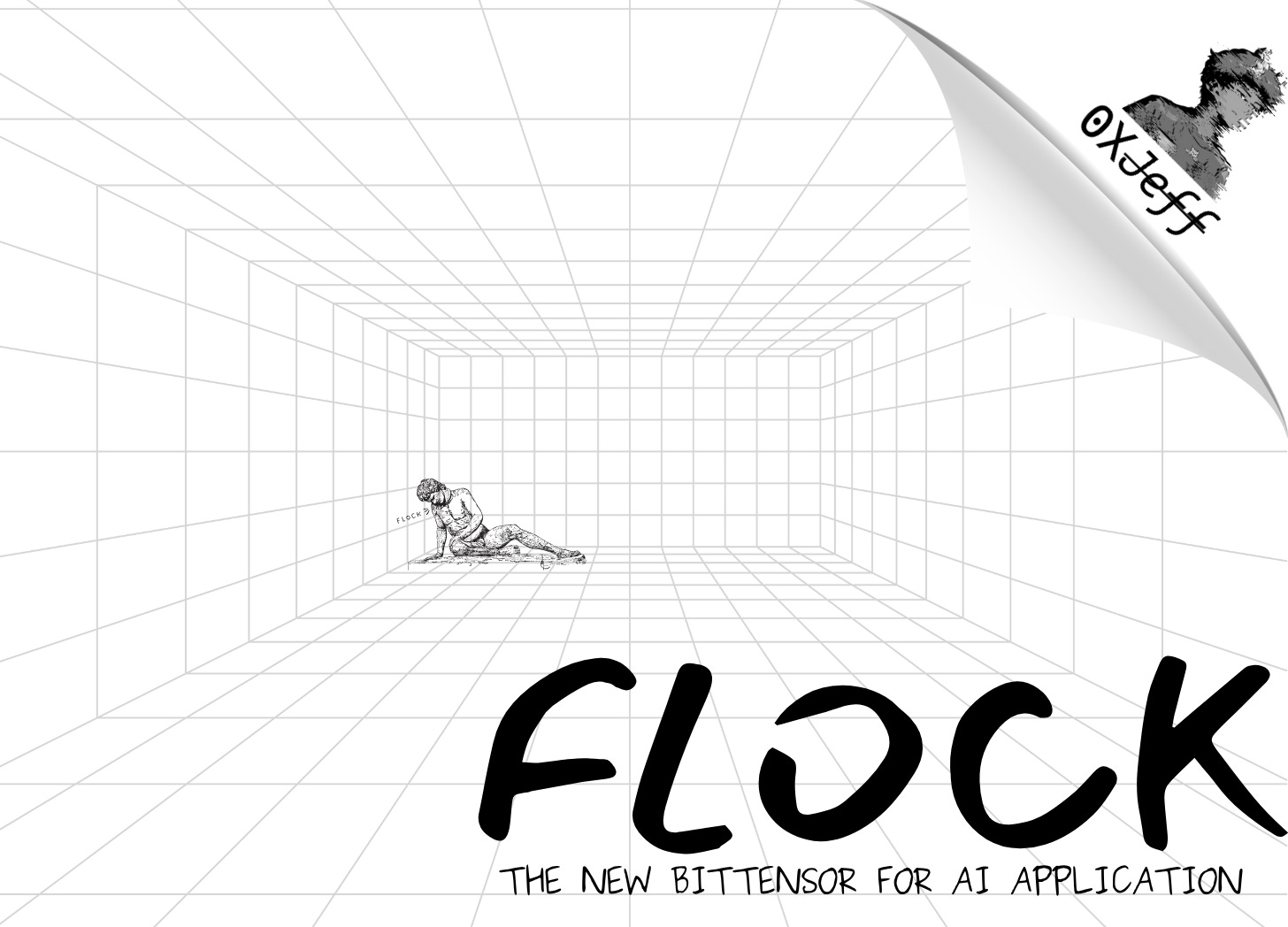Flock — The New Bittensor for AI Applications
Bittensor + Nous Research + Virtuals = DeAI Competition, Collaboration, and Distribution all in a single ecosystem
Competition is the foundation of growth in AI.
Participants compete to:
Train the best model to complete a certain task
Collectively train a single model, optimizing for the best improvements
Offer the best intelligence/insights
Offer the best trading signals
Provide the most accurate predictions
And many more competitions out there
Without competition, innovation moves at its own pace—often a little too slow. We’re seeing how Bittensor competitions are playing out in real time, with many subnets outputting outcomes that outperform industry benchmarks on their respective tasks.
The ability for subnet owners to design any incentive mechanism for miners to compete in exchange for $TAO incentives, validators to validate miners' tasks, and for stakers to delegate their $TAO to validators who are best at validating (for maximum incentives) makes Bittensor a good ecosystem that pushes the boundaries of Decentralized AI.
Flock implements similar mechanics to Bittensor within its ecosystem to accelerate the progress of initial model development and utilize federated learning to further fine-tune domain-specific models for unique use cases.
What is Federated Learning
Federated learning = a way for multiple devices (people) to train a single model without sharing data. This is particularly useful in privacy-first environments where privacy/confidentiality is of utmost importance—e.g. healthcare, government, banking, clients’ data, etc.
Instead of raw data, "gradients" are shared to the central server. The server then aggregates these updates to improve the model, which is then sent back to the devices (that are used to train the model). This process repeats iteratively.
Federated learning often uses edge devices (smartphones, computers, IoT) due to their ability to:
Generate & store sensitive data locally, complying with regulations (GDPR)
Be highly scalable since there are many smartphones out there
Contain personalized data, which is great for training domain-specific models
And since gradients (instead of raw data) are only shared, this makes it efficient for edge devices with limited CPU & connectivity.
Flock's Products
Not going to confuse you with technical mumbo jumbo here—will focus on the overview of how it works.
Flock’s product flow is: (i) AI Arena (ii) FL Alliance (iii) Moonbase
AI Arena is a competition where AI engineers ("trainers") train models of their choosing based on specified tasks (building out initial models).
For now, tasks are created manually from projects/ecosystems tapping @flock_io, proposing business plans/ideas to Flock, defining the end-use cases that they want.
Flock takes that and creates tasks on the platform where trainers can come and start training. Trainers improve models by submitting data & gradients, leading to improvements in model performance / fewer hallucinations (trainers are similar to miners in the Bittensor ecosystem).
Validators score the model based on the gradients that trainers submit.
Trainers & Validators need to stake $FLOCK to gmFLOCK before they can participate (choose from 0 to 365 days of lockup).
Trainers & Validators with higher gmFLOCK get access to more tasks and a higher rewards multiplier (each has its own criteria for $FLOCK incentives, and gmFLOCK stake is one of the criteria).
Both Trainers & Validators can get their gmFLOCK slashed if they perform maliciously (training submissions fail validation, inaccurate validations).
Delegators (stakers—normal humans like us) can stake our $FLOCK into gmFLOCK and delegate them to Trainers or Validators. Delegators receive a share of the $FLOCK rewards from them (60-230% APY).
Once AI Arena is done training & validating the initial models, FL Alliance takes those models (the best ones) and collaboratively utilizes federated learning to fine-tune those models with private datasets on edge devices.
FL Alliance is the process where initial models from AI Arena get further fine-tuned with domains-specific datasets on edge device (via federated learning)
Key Differences between AI Arena & FL Alliance
AI Arena = Competition | Initial Model Training using traditional ML | Public datasets | First step
FL Alliance = Collaboration | Fine-tuning with Federated Learning | Private Datasets on Local Devices | Advanced fine-tuning for domain-specific applications | Second step
Moonbase or the AI Model Marketplace
This is where the trained models on AI Arena & fine-tuned through FL Alliance can be deployed, utilized, and monetized.
Moonbase is still in beta, but Phase 2 & 3 will introduce seamless ways for contributors (trainers, validators, delegators) to have ownership of these models/agents. Anyone can pay/subscribe to utilize models (project owners, researchers, businesses, etc.), and models can be deployed & integrated on any launchpad.
You can think of Flock as a full-loop, end-to-end agent development platform that starts from trainers competing to build the best initial models to fine-tuning for domain-specific applications to deploying the models/agents to solve unique problems.


